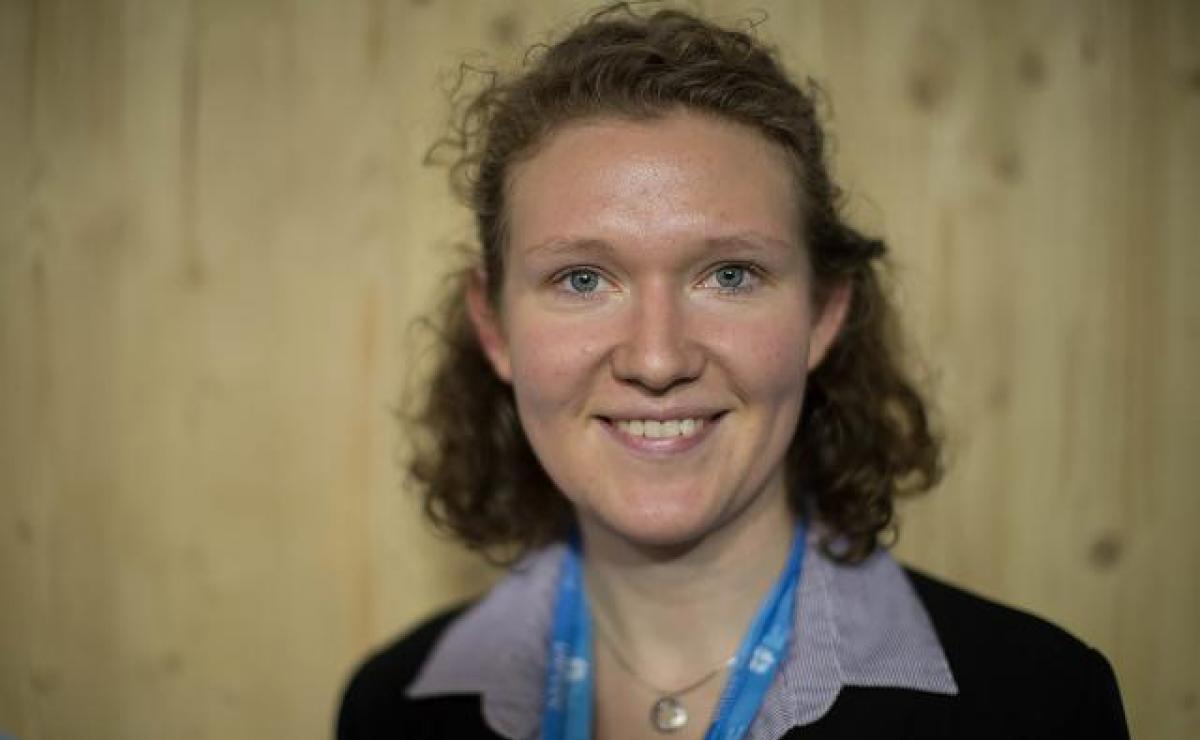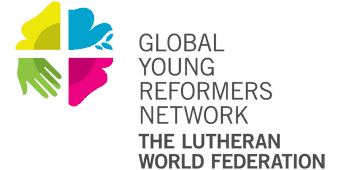“My church aims to be CO₂ neutral by 2050”

Interview with COP23 delegate Helena Funk from Germany
(LWI) – “We should not stop our efforts to reach climate justice - there is still a long way to go!” says Helena Funk. She is one of ten young adults from the European regions and from the Asia region that form the Lutheran World Federation (LWF) delegation to the COP23 climate conference in Bonn, Germany.
The 24-year-old theology student comes from the Evangelical-Lutheran Church of Northern Germany. The church was formed through the unification of three churches in 2012. Each of the 13 church districts has access to the sea, either directly to the coastline of the North Sea and the Baltic Sea, or through big rivers such as the Elbe. This also influences the church’s engagement in climate justice.
The Lutheran World Information spoke to her about her engagement for climate justice and the experiences made at the COP23 with the LWF delegation.
What is your personal involvement with climate justice?
It started during my high school education. One of my key experiences was in the framework of a student exchange program. Several pupils from Germany, England and Denmark worked together on a project aiming at making our high schools sustainable.
A year I spent in Tanzania after finishing high school also had a significant impact. I critically reflected on my lifestyle and passed this experience on to other young people.
During my studies in another city, I shared an apartment with other ecologically conscious people. We abstained from meat and participated in food sharing to prevent it being wasted. Much of my clothing comes from second hand shops and I mainly use public transport or a bicycle to get around.
In which ways is your church engaged in climate justice?
In 2015 my church adopted a church law promoting climate protection which includes an action plan on all levels, congregations, church institutions and administration bodies. The goal is to gradually reduce the emission of greenhouse gases to zero by 2050. Also, a fixed percentage of the church’s annual budget is set aside for climate action.
The first action plan covers the period from 2016 to 2021. Reducing energy consumption and utilizing renewable energy are two important aspects of this.
According to the plan, the whole church should be using green, i.e. renewable, energy by 2020. A big chunk of the CO₂ reduction pertains to buildings – making them more energy efficient, changing the habits of visitors and users of the buildings, etc. The procurement of food, consumer goods and technical equipment is another part of this package. For example, food should come from the region, be seasonal and meet fair trade criteria.
To inform and motivate people to take these action, a lot of emphasis is placed on education and consulting. The office for climate justice - “Infostelle Klimagerechtigkeit” - can be contacted for advice, educational material, workshops and ideas regarding climate protection and climate action from a local, congregational to an international, partnership level.
The church’s youth are playing an active and important role in promoting climate education and climate action. 120 young people attended our last Youth Climate Conference in October, 46 of them were international participants from neighboring countries around the Baltic Sea. The conference took place on a sailing ship, which represents the world in a nutshell. Participants had to work and live together with limited resources – a great learning experience!
The sailing ship experience is also taken up in several youth camps called “KlimaSail” offered every year which have become quite popular already and also reach people not normally interested in church activities.
The youth also formulated a document with ten demands ranging from stopping the use of fossil fuels to legal ways for climate migration which a delegation handed over to Germany’s minister for the environment, Dr Barbara Hendricks, during the COP23 in Bonn.
What are your impressions from COP23 – what are you taking back home to your church?
The negotiations by the politicians are very important for achieving more climate justice. The opportunity for global actors of civil society to come together and to exchange thoughts is also important. It is everyone, it is the civil society implementing sustainable lifestyles. I think that should be much better promoted and should be taken up by the media more often. The COPs are not only about political negotiations but also about actors of civil society meeting, exchanging ideas and encouraging each other.
What I will take home are stories about people and how climate change already influences their life, their homes and their country. The Bonn Zone – the area where the actors from civil society meet – offers space to listen to the untold stories of individuals, really touching stories, which make climate change and climate justice very realistic and concrete.
This was like a wake-up call for me. We should not stop our efforts and there is still a long way to go! It’s not only about us in Germany reaching the aim of lowering emission but it is also about loss and damage and to support those who are and will suffer from climate change. I think as members of the global interfaith communion we should use the possibilities we have and existing networks to really care for each other to achieve global climate justice.
